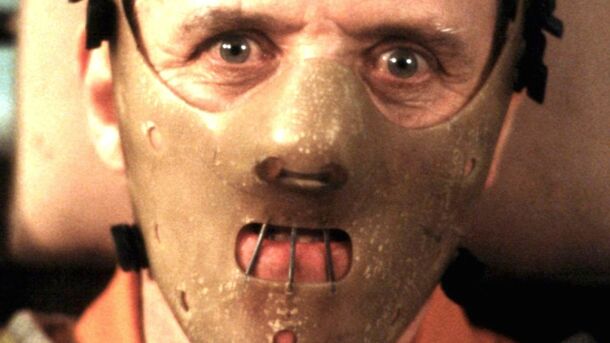Silence Of The Lambs' Original Ending Was Much More Gruesome

The Silence of the Lambs is a cult film adaptation of Thomas Harris's novel.
This movie has earned a reputation as one of the greatest and most influential films among critics, film directors, and audiences. This thriller is genuinely scary and can be the cause of nightmares for some, but as it turns out, it could've ended even more gruesome.
The original script by Tally had a closed and horrifying ending. There still was a phone call to Clarice, and Lecter tells her that he has "no plans to call on" Clarice, and that "the world [is] more interesting with [her] in it." But Lecter has already got his next target, Dr. Chilton, and things don't look so promising to him.
Here's the excerpt from the original version of the screenplay:
"INT. A BOOKLINED STUDY
In the swivel chair, amidst the wreckage of his papers and books, is the writhing figure of Dr. Frederick Chilton. The extreme intricacy of his bindings recalls Dr. Lecter's own former restraints. His screams are muffled by the tape over his mouth; he stares at Dr. Lecter like a rabbit trapped in headlights.
DR. LECTER
Considers him for a general moment. Then raises the little pen-knife. His eyes are twinkling.
DR. LECTER
Well, Dr. Chilton. Shall we begin?
FADE OUT
THE END"
In Syd Field's book Four Screenplays, Ted Tally commented on his original ending being changed after director Jonathan Demme's suggestion.
"That freed me up. The fact that Chilton was not yet trapped and caught, and I felt I could have some fun with it. It was more open-minded as well. Something else I learned is that if you can end a movie without tying up all the loose ends, it's better. If you can leave it open-ended, it will live in the audience's imagination better… They will continue the story in their own minds when they leave the theater."
This change definitely paid off. The more open ending, despite being less straightforward on the gruesome death awaiting Dr. Chilton, is even more fear-inducing. The human brain is a great tool to create possible horrible scenarios, which is why a hint at the possibility can have a more devastating effect rather than something that is a sure fact. And another proof of the brilliance of that choice is that the actual ending became one of the most memorable in cinematic history and still haunts everyone who watched that masterpiece of a movie.
